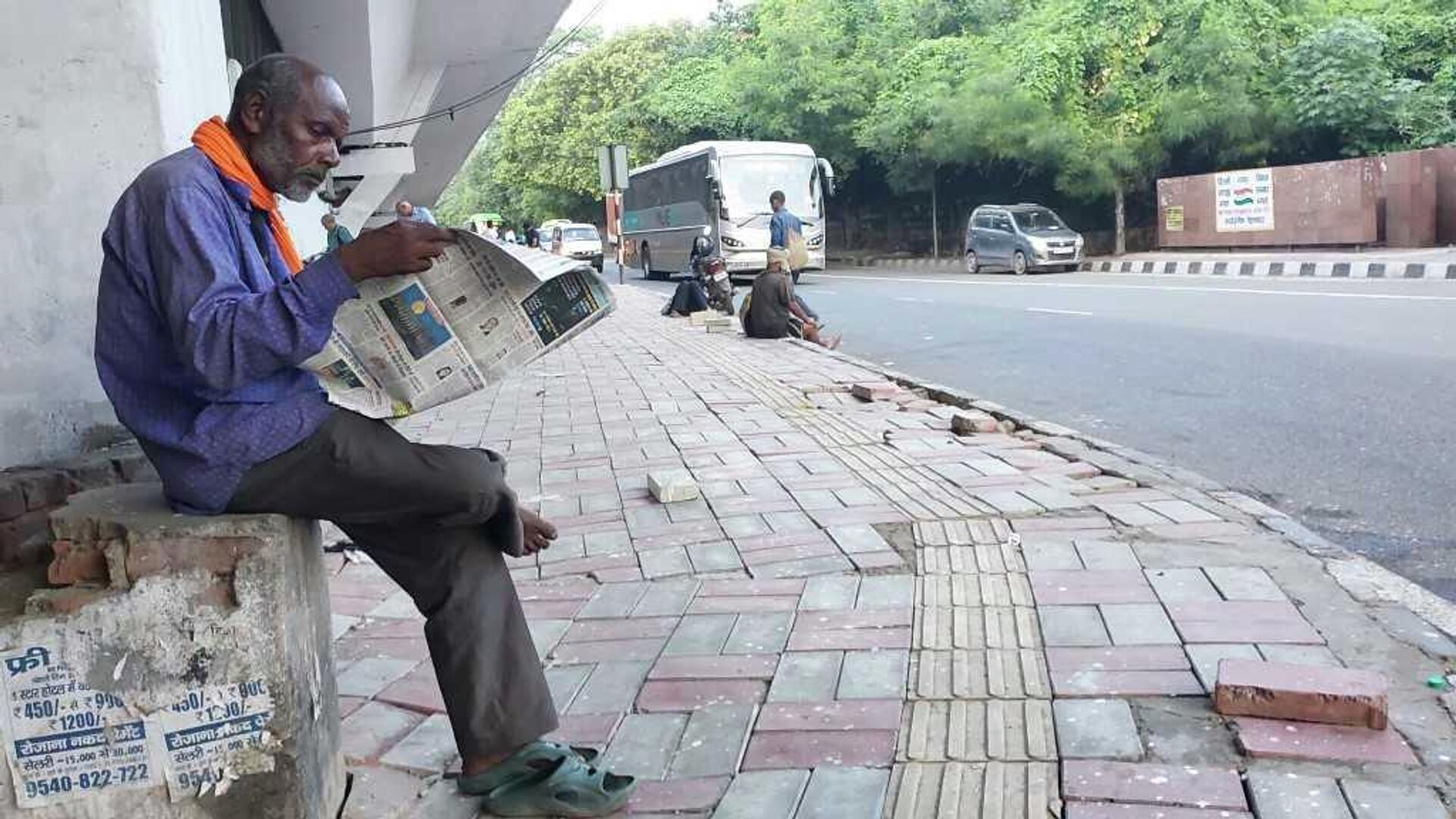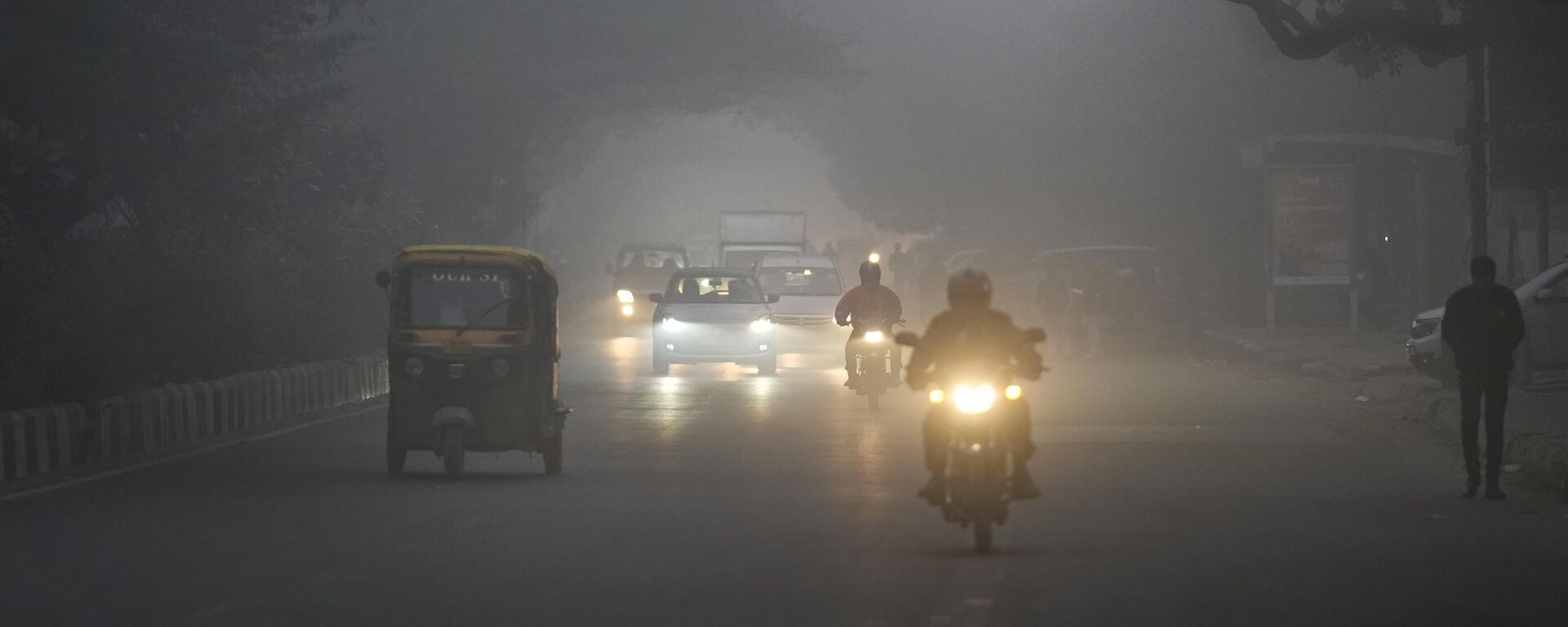https://sputniknews.in/20231225/winter-in-delhi-tough-season-for-citys-homeless-5929683.html
Winter in Delhi: Tough Season for City's Homeless
Winter in Delhi: Tough Season for City's Homeless
Sputnik India
While winters in Delhi can be enjoyable for some, there are many individuals who need assistance to endure the harsh weather conditions.
2023-12-25T19:15+0530
2023-12-25T19:15+0530
2023-12-25T19:15+0530
arvind kejriwal
delhi
india
bihar
cold weather
homeless people
welfare schemes
sputnik exclusives
https://cdn1.img.sputniknews.in/img/07e7/08/04/3412491_128:0:1152:576_1920x0_80_0_0_c106b4f36225caeff298f93b13f27a9e.jpg
When asked about their preferred weather in Delhi, most people would choose winter. This is because the Indian capital experiences scorching hot summers, with temperatures soaring as high as 50 degrees Celsius.However, there are others who also enjoy winter rather than summer, but hesitate to admit it. They understand that winters in Delhi can be tough, with the weather dropping to near freezing temperatures and the need to keep warm becoming a burden.To gain insight into these challenges, Sputnik India interviewed several homeless people who spend their days outdoors and search for shelters at night during the winter months.The man, who came to the city from a remote area of Bihar almost a decade ago in search of “well-paying work”, is employed as a labourer.During the winters, he says, things change – the sun sets early and in order to stay warm during the night, one has to search for space in night shelters – makeshift arrangements by the city government for poor people so they can stay indoors during winter's freezing nights.He proceeded to explain the disadvantages of hot weather, highlighting the risk of heat strokes for those working outdoors in May and June due to the intense heat. However, he assured that these challenges are still manageable. He suggested taking breaks in shaded areas, drinking cold water, or opting for inexpensive beverages like lemon juice to stay cool.Another homeless person, who identified himself as Ram Chandra, told Sputnik that “summers make you sweat, but they generally don’t kill you”.When asked about his opinion on winters in Delhi, the man, presumably in his 30s, replied that winters can be enjoyable as long as one has employment and a secure place to spend the night.He also expressed gratitude to those who come every morning to help people with home-cooked meals.According to reports, Delhi has between 150,000 and 200,000 homeless people, and most of them often seek refuge along the sides of roads, on pavements, or in any available open space that offers a measure of safety.To tackle the problem, both the central and state governments have implemented numerous welfare schemes aimed at providing support for the homeless population. Measures such as offering night shelters, food, and winter clothing have proven effective in helping them survive the harsh winters in Delhi.Conversely, for others, winter provides much-needed relief from the sweltering heat and entices them to take time off work to enjoy the colder weather with loved ones.Many of the city's schools and other institutions are also turned into night-time shelters for such people during the cold winter period, which, despite all possible efforts by the government and civil society, leaves several homeless individuals frozen to death every year.
https://sputniknews.in/20231105/too-toxic-to-breathe-delhi-chokes-on-air-pollution-5256475.html
delhi
india
bihar
Sputnik India
feedback.hindi@sputniknews.com
+74956456601
MIA „Rossiya Segodnya“
2023
Sushil Kumar
https://cdn1.img.sputniknews.in/img/07e7/0a/14/4972259_0:0:613:612_100x100_80_0_0_f89d4c7eaa17d23ebb41934f3e07e508.jpg
Sushil Kumar
https://cdn1.img.sputniknews.in/img/07e7/0a/14/4972259_0:0:613:612_100x100_80_0_0_f89d4c7eaa17d23ebb41934f3e07e508.jpg
News
en_IN
Sputnik India
feedback.hindi@sputniknews.com
+74956456601
MIA „Rossiya Segodnya“
Sputnik India
feedback.hindi@sputniknews.com
+74956456601
MIA „Rossiya Segodnya“
Sushil Kumar
https://cdn1.img.sputniknews.in/img/07e7/0a/14/4972259_0:0:613:612_100x100_80_0_0_f89d4c7eaa17d23ebb41934f3e07e508.jpg
schools and other institutions are also turned into night-shelters, highest temperatures going up to 50 degree celsius, chilly weather conditions,
schools and other institutions are also turned into night-shelters, highest temperatures going up to 50 degree celsius, chilly weather conditions,
Winter in Delhi: Tough Season for City's Homeless
While winters in Delhi can be enjoyable for some, there are many individuals who need assistance to endure the harsh weather conditions.
When asked about their preferred weather in Delhi, most people would choose winter. This is because the Indian capital experiences scorching hot summers, with temperatures soaring as high as 50 degrees Celsius.
However, there are others who also enjoy winter rather than summer, but hesitate to admit it. They understand that winters in Delhi can be tough, with the weather dropping to near freezing temperatures and the need to keep warm becoming a burden.
To gain insight into these challenges, Sputnik India interviewed several homeless people who spend their days outdoors and search for shelters at night during the winter months.
“Summers allow me work without worrying too much about my stay at night as I sleep on footpaths with other friends”, Ramesh, 45, said when Sputnik India enquired about what he likes the most while being in Delhi.
The man, who came to the city from a remote area of Bihar almost a decade ago in search of “well-paying work”, is employed as a labourer.
During the winters, he says, things change – the sun sets early and in order to stay warm during the night,
one has to search for space in night shelters – makeshift arrangements by the city government for poor people so they can stay indoors
during winter's freezing nights.
He proceeded to explain the disadvantages of hot weather, highlighting the risk of heat strokes for those working outdoors in May and June due to the intense heat. However, he assured that these challenges are still manageable. He suggested taking breaks in shaded areas, drinking cold water, or opting for inexpensive beverages like lemon juice to stay cool.
“But winters require much more care, otherwise a person may even die if he sleeps out under the open sky”, Ramesh noted.
Another homeless person, who identified himself as Ram Chandra, told Sputnik that “summers make you sweat, but they generally don’t kill you”.
When asked about his opinion on winters in Delhi, the man, presumably in his 30s, replied that winters can be enjoyable as long as one has employment and a secure place to spend the night.
“I’m happy the way Kejriwal government has come up with a number of facilities for homeless people like me”, said Ram Chandra, who mostly lives and works in the Kashmiri Gate area of India's national capital.
He also expressed gratitude to those who come every morning to help people with home-cooked meals.
“Many families and individuals generally come with food in their cars to distribute and it actually helps us start our day with the required energy”, he said, adding that those who work are not worried about dinner, but the old and the physically challenged are provided something to eat from government agencies.
According to reports, Delhi has between 150,000 and 200,000 homeless people, and most of them often seek refuge along the sides of roads, on pavements, or in any available open space that offers a measure of safety.
To tackle the problem, both the central and state governments have implemented numerous welfare schemes aimed at providing support for the homeless population. Measures such as offering night shelters, food, and winter clothing have proven effective in helping them survive the harsh winters in Delhi.
Conversely, for others, winter provides much-needed relief from the sweltering heat and entices them to take time off work to enjoy the colder weather with loved ones.
Many of the city's schools and other institutions are also turned into night-time shelters for such people during the cold winter period, which, despite all possible efforts by the government and civil society, leaves several homeless individuals frozen to death every year.



